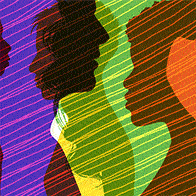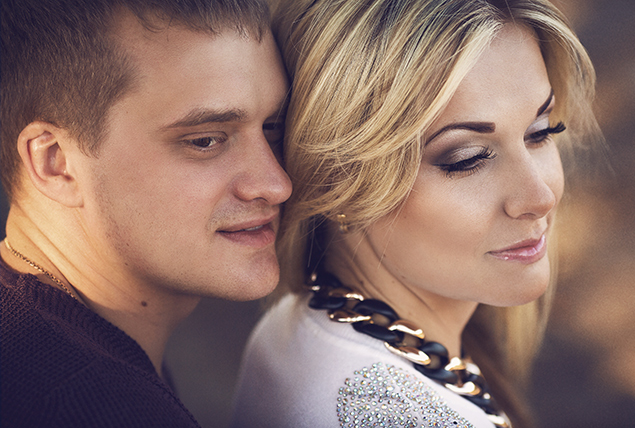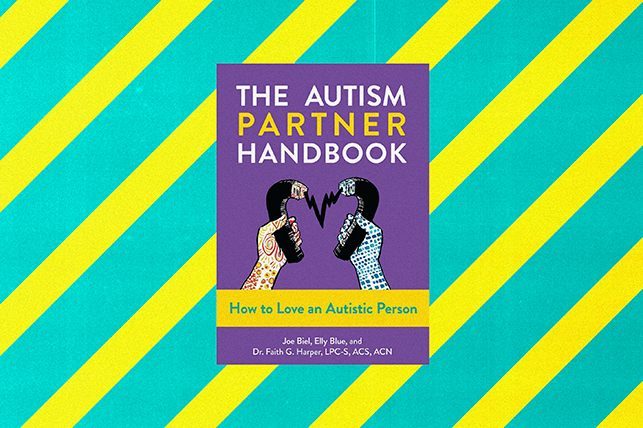The Challenges and Triumphs of Mixed Neurology Relationships

Rachel and her neurotypical partner, Sam, first became friends in high school but didn't get together until they'd both graduated. Their slow walk toward romance wasn't for Sam's lack of trying, Rachel said.
"It's actually kinda funny," she said. "I slowly developed feelings for them throughout our friendship. Only after I finally gained the courage to ask them out, I learned that they had a crush on me and had been flirting the entire time."
It was a year into their relationship that Rachel was diagnosed with autism. Things had gotten pretty rocky by that point, and Sam and Rachel were in the midst of relationship counseling for persistent problems with communication.
"They actually almost broke up with me, and we had to go to couples therapy because of what essentially boiled down to us having difficulty understanding each other's emotions, especially when we had arguments," Rachel said.
Now, three years into the relationship and looking back, Rachel said these problems started to make a lot more sense after her diagnosis. Repairing their relationship involved an effort on both Sam and Rachel's part to understand just what made their points of view so different sometimes.
What 'Love on the Spectrum' leaves out
The influence that autism spectrum disorder (ASD) can have on romantic relationships is the central focus of Netflix's popular series "Love on the Spectrum." The Australian reality show follows an ensemble of individuals with ASD as they go on dates, receive lessons on courtship etiquette, and disclose their romantic hopes, victories and struggles.
But if "LotS" was your first encounter with the autistic community, you might walk away with the idea that people on the spectrum and neurotypical people swim in separate dating pools. More often than not, the show pairs up two neurodivergent individuals, rather than couples where one partner has ASD and the other does not.
Amy Gravino, an autism sexuality advocate and relationship coach, calls the former "mixed neurology" relationships. Despite their conspicuous absence from "Love on the Spectrum," relationships between neurotypicals and individuals with ASD are actually quite common, Gravino said.
Each couple will have its own set of challenges and successes, and every individual partner needs to chart their own path to understanding their companion better.
Diagnosed with autism at the age of 11, Gravino now works at the Rutgers Center for Adult Autism Services. She's also writing a book, "The Naughty Autie," a dating guide based on her own experiences navigating dating and sex on the spectrum.
When it comes to counseling relationships on the spectrum, there's no one-size-fits-all approach, she said. Autism is a complex disorder that manifests in many different ways, requiring different levels of outside assistance.
"You could have five autistic people in a room, and the only thing they might have in common is the diagnosis," Gravino said.
That means mixed neurology relationships are also all different—each couple will have its own set of challenges and successes, and every individual partner needs to chart their own path to understanding their companion better.
Fighting myths about ASD and love
While every individual with ASD is different, the stereotypes that they face—in the dating realm or otherwise—are much the same. The minuscule picture of life on the spectrum that neurotypical people see onscreen has a big impact on how individuals with ASD are perceived and treated in the real world.
"Love on the Spectrum" is somewhat controversial within online autistic spaces for that reason. While some appreciate the sincere attempt to portray autism in a positive light, others take issue with what they see as a pervasive infantilizing tone.
Sara Luterman now reports for The 19th, but last year wrote a review for Spectrum News pointing out several production choices that frame participants more like children than adults seeking meaningful relationships.
"There are more interviews with parents than with the people the show is ostensibly about," Luterman wrote. "The musical cues would be more appropriate for a documentary about clumsy baby giraffes than for a reality series about adult humans."
Individuals with ASD often interpret and express emotions differently. Consequently, neurotypical people often misread their inner world as bereft of any feeling at all.
Infantilization is a persistent problem when it comes to dating on the spectrum. Autistic adults are often perceived as "children in big bodies," Gravino said, and thus assumed to be asexual or otherwise innocent when it comes to sex.
But while the show sometimes misses the mark on tone, it tackles another misconception well: The notion autistic people don't desire or aren't capable of loving relationships.
That pervasive myth is an outgrowth of yet another misconception—that people on the spectrum are unempathetic or unfeeling, Gravino said. On the contrary, they often feel too much.
"We are full of love, we are full of empathy," she said. "It's just that everything gets in—rather than nothing getting in—and we can't filter it out. So that turns into a shutdown."
Individuals with ASD often interpret and express emotions differently. Consequently, neurotypical people often misread their inner world as bereft of any feeling at all. This can be a real problem in romantic relationships, where shared feelings of love and understanding are foundational.
"People think that if you don't display emotions in a way that they're used to, that you're not feeling those emotions," Gravino said. "And that does so much damage and so much harm in so many situations—especially in relationships."
Learning direct communication
There is one common thread in the literature for mixed-neurological couples—developing a straightforward and honest communication style is key.
Bridging the divide between two distinct brains presents an ongoing challenge for any couple, of course. But it becomes especially important when reconciling two minds that often take in the world in markedly different ways.
Consider the early stages of a fledgling relationship. In neurotypical dating, this period can be a kaleidoscopically complex dance of interpreting unspoken signals and following unwritten social rules—how soon to text someone, what to say on a first date, when to try to move things forward, and on and on.
These complexities—which often torment even neurotypicals—are totally mystifying to most individuals with ASD. As in Rachel's case, people on the spectrum often struggle to interpret coy flirtation. The same goes for the ever-expanding code that is innuendo, Gravino said.
"It's like this whole other language you have to learn," she said. "If you're missing out on that other language that a peach isn't just a peach, and an eggplant isn't just an eggplant, you're going to be missing out on a huge part of what's going on."
Individuals on the spectrum usually find it much easier to be upfront with their intentions and desires. That's not always a disadvantage, either—many neurotypical partners find this straight talk refreshing.
Anna has been dating her partner, Ben, who has ASD, for three months. She said it was that straightforward quality that first drew her to him.
"I was on the dating scene a lot, but no one sort of clicked," she said "He was really upfront that he was autistic and I admired that. He's the first person in a long time that I felt wasn't playing games. He was just always being himself."
Developing communication that helps both partners understand each other extends beyond the courtship phase. In their relationship counseling sessions, Sam and Rachel learned to take a moment to explain their mindset to each other during fights.
"Now we each explain how we perceive a certain situation and why we're feeling the way we are during fights," Rachel said. "It helps us empathize with each other."
Anna also said she's spent time researching online how to better understand—and be understood by—her partner.
"The main one is to just communicate what I want [or] if something is bothering me really clearly," she said. "It's quite refreshing to be able to be so honest."
Meeting in the middle
Individuals on the spectrum spend much of their lives learning to accommodate the neurotypicals around them, Gravino said.
"In all relationships—whether we're talking about employment, when we're talking about friendships—the burden for having to change is often put on the autistic person," she said "The autistic person needs to fit into the neurotypical world."
A world that rarely takes such pains in return. She pointed out that on "Love on the Spectrum," contestants are constantly offered "neurotypical dating tips." In other words, they're given extensive lessons on emulating how a non-autistic person might behave on a date. Intentionally or not, they're being told to obscure some part of themselves to find love.
But any relationship is a two-way street. Gravino cautions neurotypical individuals to avoid placing the responsibility for change solely on their partners. They must also learn to adapt their behavior to their partner's unique needs.
'If someone truly cares about you, they will make the effort to understand where you're coming from, even if they don't get it right away.'
"You have to be willing to be more explicit and clear in the things that you say and that you want," Gravino said. "You have to not get offended if somebody doesn't pick up on or understand what you're trying to communicate all the time."
To individuals on the spectrum, she emphasizes that while neurotypical partners might not always understand them, that doesn't make their feelings invalid. Nor should they settle for someone from whom they must hide their true selves.
"Neurotypicals don't always understand where we as autistic people are coming from," she said. "If someone truly cares about you, they will make the effort to understand where you're coming from, even if they don't get it right away."
There's no universal roadmap for neurotypicals to better understand their autistic partners, Rachel said, but the first steps of that journey begin with honest communication and empathy.
"Every autistic person is different, hence the word 'spectrum,'" she said. "So the best advice I have is to just have an honest conversation and listen to their experience and what they need for support."




















